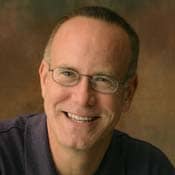Editor's Note: This is the fifth installment of Dr. Roberts' "Master Class for Pastors." The first parts are the Introduction, "Who Are Your Partners?" "The Impact of Thanksgiving," and "How Do You Talk About Your Church?"
Pastoral ministry does not take place in a vacuum. Every pastor serves in the context of a particular community of faith, each with a distinctive history, tradition, and ethos, and each within a broader culture that engulf both pastor and church. We fool ourselves if we think that we are protected from the influence of that culture, even if our cultural posture is separatistic and oppositional. Ironically, in our attempt to reject the wider culture, we are often profoundly shaped by it.
Pastoral training generally focuses on theological and historical subjects, along with pastoral care and preaching. But pastors-to-be are not always challenged to think carefully about the wider cultural issues that will impact their pastoral work. Surveys show that Americans are less likely to trust authority figures today than they were a few decades ago. Watergate, Enron, and the financial crises of our own day may seem far removed from pastoral work, but those of us who lead in any context, including the church context, must realize that our leadership will be compared and sometimes confused with that of secular leaders who have demonstrated gross negligence and violations of trust.
In 1 Thessalonians, the Apostle Paul and his colleagues demonstrate their accurate understanding of the culture in which they serve. They take seriously the ways their efforts might be misunderstood and show an awareness of the societal controversies that would impact their efforts as servants of Christ. We see this awareness especially in several verses of chapter 2, where Paul, Silvanus, and Timothy explain their motives (and non-motives) as Christian church planters:
For our appeal does not spring from deceit or impure motives or trickery, but just as we have been approved by God to be entrusted with the message of the gospel, even so we speak, not to please mortals, but to please God who tests our hearts. As you know and as God is our witness, we never came with words of flattery or with a pretext for greed; nor did we seek praise from mortals, whether from you or from others, though we might have made demands as apostles of Christ (1 Thess. 2:3-7a).
On a first reading, you might be inclined to believe that opponents of Paul and his colleagues had accused them of deceit, impure motives, trickery, desiring to please people, flattery, greed, and desiring human praise. In fact, it used to be common for commentators on this passage to suppose that Paul was fighting his critics, much like he had to do in 2 Corinthians. The opening verses of 1 Thessalonians 2 might have been called something like "Apostolic Defense," even though 1 Thessalonians provides no other evidence of attacks against Paul and ample evidence that the Thessalonian church had unabashed affection for the apostolic founder.
Then, in 1970, New Testament scholar Abraham Malberbe published an article called "'Gentle as a Nurse': The Cynic Background to 1 Thessalonians 2." In this article in the respected journal, Novum Testamentum, Malherbe showed how closely the rhetoric of 1 Thessalonians 2 parallels debates among the popular philosophers of the first century—especially among those known as the Cynics who, because of their "doglike" rejection of popular norms ("cynic" means "doglike"), were sometimes accused of doing philosophy for personal gain, pretending to care for people while seeking to line their own wallets and augment their personal power. Yet, there were other Cynic philosophers who genuinely sought to improve the human condition through their speeches and counsel. If a popular philosopher wandered into Thessalonica in the first century A.D., he would be immediately suspect. Was he there to cheat the people out of their money? Or was he there to benefit the people and their city? Just what sort of philosopher was he?





